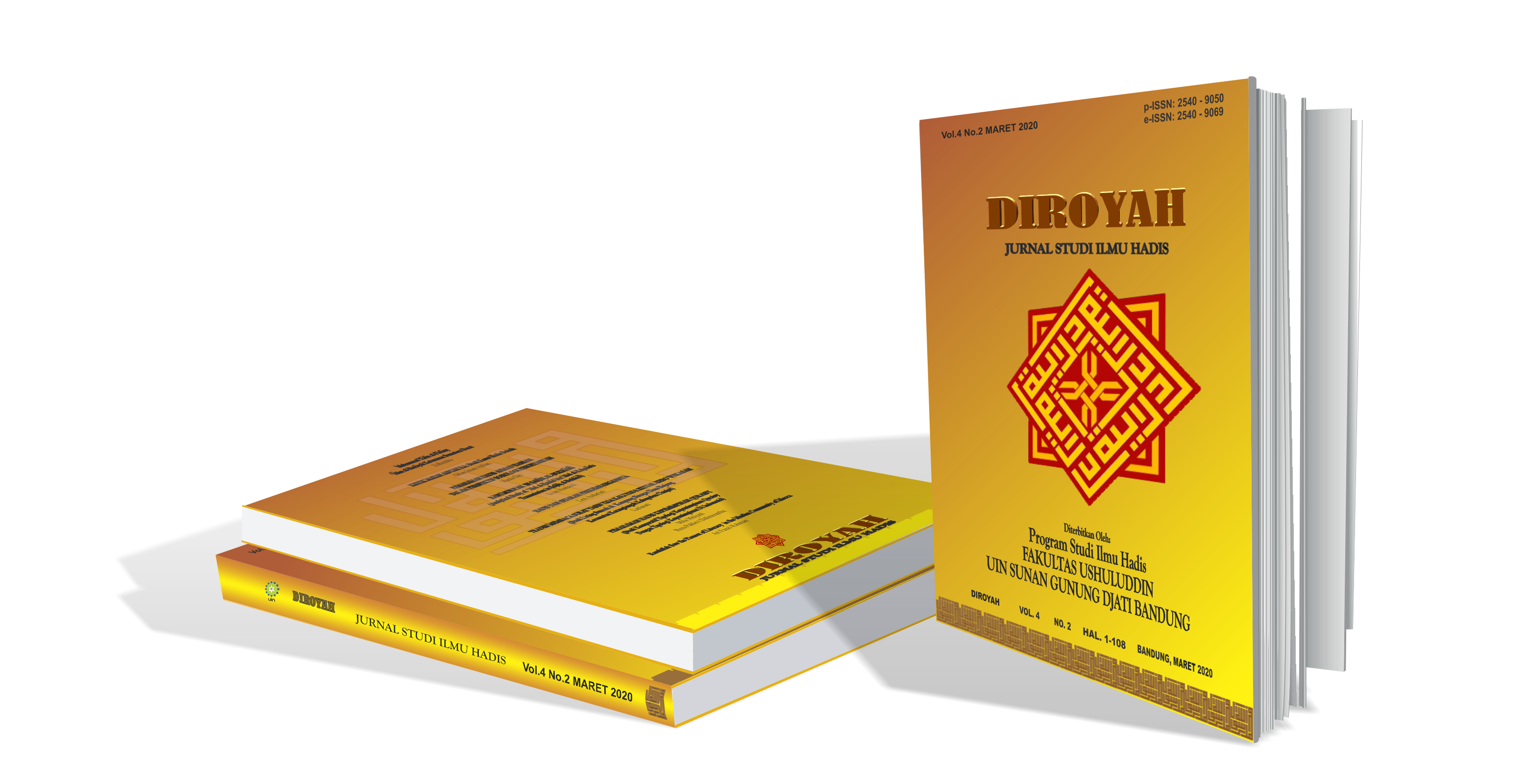The Contributions of the MawÄlÄ« to Hadith Scholarship
Main Article Content
Abstract
Islamic scholarship is built by various communities. As a religion that carries the spirit of liberation, Islam provides opportunities for anyone to self-actualize. MawÄlÄ« was an element of the early Muslim community that contributed positively to hadith scholarship. During the Umayyah Dynasty, the mawÄlÄ« became a second-class community, but it had a positive impact on the mawÄlÄ« to take another path to be considered the main community. This research uses a qualitative method with an analytical-descriptive approach. The author used a biographical dictionary of hadith narrators to find the research data. For the data found to be informative, the author uses a historical perspective to find out the traces of his scholarship. In addition, the author confirms the hadith books. Based on the elaboration, it can be concluded that the mawÄlÄ«, with its various types, contributed greatly to Islamic scholarship, especially in the field of hadith studies, from the time of the Companions to the later generations.
Article Details
Authors who publish with this journal agree to the following terms:
- Authors retain copyright and grant the journal right of first publication with the work simultaneously licensed under a Creative Commons Attribution-NonCommercial-ShareAlike 4.0 International License that allows others to share the work with an acknowledgment of the work's authorship and initial publication in this journal.
- Authors are able to enter into separate, additional contractual arrangements for the non-exclusive distribution of the journal's published version of the work (e.g., post it to an institutional repository or publish it in a book), with an acknowledgment of its initial publication in this journal.
- Authors are permitted and encouraged to post their work online (e.g., in institutional repositories or on their website) prior to and during the submission process, as it can lead to productive exchanges, as well as earlier and greater citation of published work (See The Effect of Open Access).
References
Al-Bayhaqi. (2003). Shu‘b al-ĪmÄn (Vol. 4). Maktabah al-Rushd.
al-Hakim al-Naisaburi. (n.d.). Ma‘rifat Ulum al-Hadis. Maktabah al-Mutanabbi.
Al-MiqdÄd, M. (1988). “Al-MawÄlÄ« wa al-NiẓÄm al-WalÄ’ min al-JÄhiliyyah ḤattÄ Ä€khir ‘Aá¹£r al-UmawÄ«â€, (Beirut: DÄr al-Fikr, 1988). DÄr al-Fikr.
al-Naisaburi, A. al-H. M. bin al-H. (1991). Shahîh Muslim. Dar al-Kutub al-Ilmiyyah.
Anjum, O. (2021, February 4). The ‘Constitution’ of Medina: Translation, Commentary, and Meaning Today.
Https://Yaqeeninstitute.Org/Ovamiranjum/the-Constitution-of-Medina-Translation-Commentary-and-Meaning-Today .
Brown, J. (2019). Slavery and Islam. Oneworld.
Cooperson, M. (2015). “arabs†and “iraniansâ€: The uses of ethnicity in the early Abbasid period. In Islamic History and Civilization (Vol. 114). https://doi.org/10.1163/9789004281714_014
Goldziher, I. (2005). Muslim Studies . Routledge.
Hamdeh, E. (2021). MawÄlÄ«: How Freed Slaves and Non-Arabs Contributed to Islamic Scholarship.
Https://Yaqeeninstitute.Org/Read/Paper/Mawali-How-Freed-Slaves-and-Non-Arabs-Contributed-to-Islamic-Scholarship.
Hanbal, A. bin. (1995). Musnad Ahmad. Muassasatu ar-Risalah.
Ibn KhaldÅ«n, Ê¿Abd al-RaḥmÄn b. Muḥammad. (2004). Muqaddimat ibn Khaldun (Vol. 2). DÄr YaÊ¿rib.
Ibn á¹¢alÄh. (1986). Muqaddimah ibn á¹¢alÄḥ. DÄr al-Fikr.
Ibrahim, I. (2020). MawÄlÄ«, Para Budak yang Berjasa Mengembangkan Ilmu Keislaman . Https://Muhammadiyah.or.Id/Mawali-Para-Budak-Yang-Berjasa-Mengembangkan-Ilmu-Keislaman/ .
Jabali, F. (2010). Sahabat Nabi; Siapa, kemana, dan Bagaimana? Mizan.
Khan, N. (2020, February 4). “Divine Duty: Islam and Social Justice,†Yaqeen, Https://Yaqeeninstitue.Org/Nazir-Khan/Divine-Duty-Islam-and-Social-Justice#ftnt_ref10 .
Majah, I. (1996). Sunan Ibnu Majah. DÄrul Ma’rifah.
Motzki, H. (2004). The Role of Non-Arab Converts in the Development of Early Islamic Law†in The Formation of Islamic Law (W. B. Hallaq, Ed.). Taylor and Francis Group,.
Nawas, J. A. (2005). The contribution of the mawÄlÄ« to the six Sunnite canonical ḥadÄ«th collections. In Ideas, Images, and Methods of Portrayal. Brill.
Raharusun, A. S., & Kodir, A. A. (2021). Diskursus Etnisitas dalam Studi Hadis: MawÄlÄ«, Aktivisme dan Kesalehan . Diroyah, 5(2), 69–80.
Rahman, M. S. (2016). Kajian Matan Dan Sanad Hadits Dalam Metode Historis. Jurnal Ilmiah Al-Syir’ah, 8(2), 425–436.
https://doi.org/10.30984/as.v8i2.15
ShiblÄ«, M. M. (1962). al-Madkhal fil taÊ¿rÄ«f bil-fiqh al-islÄmÄ« wa qawÄÊ¿id al-milkiyya wa al-Ê¿uqÅ«d fÄ«hi . DÄr al-Ta’lÄ«f.
Urban, E. (2012). The early Islamic mawÄlÄ«: A window onto processes of identity construction and social change. In ProQuest Dissertations and Theses.
Urban, E. (2020). Conquered Populations in Early Islam: Non-Arabs, Slaves and the Sons of Slave Mothers. Edinburgh University Press.

